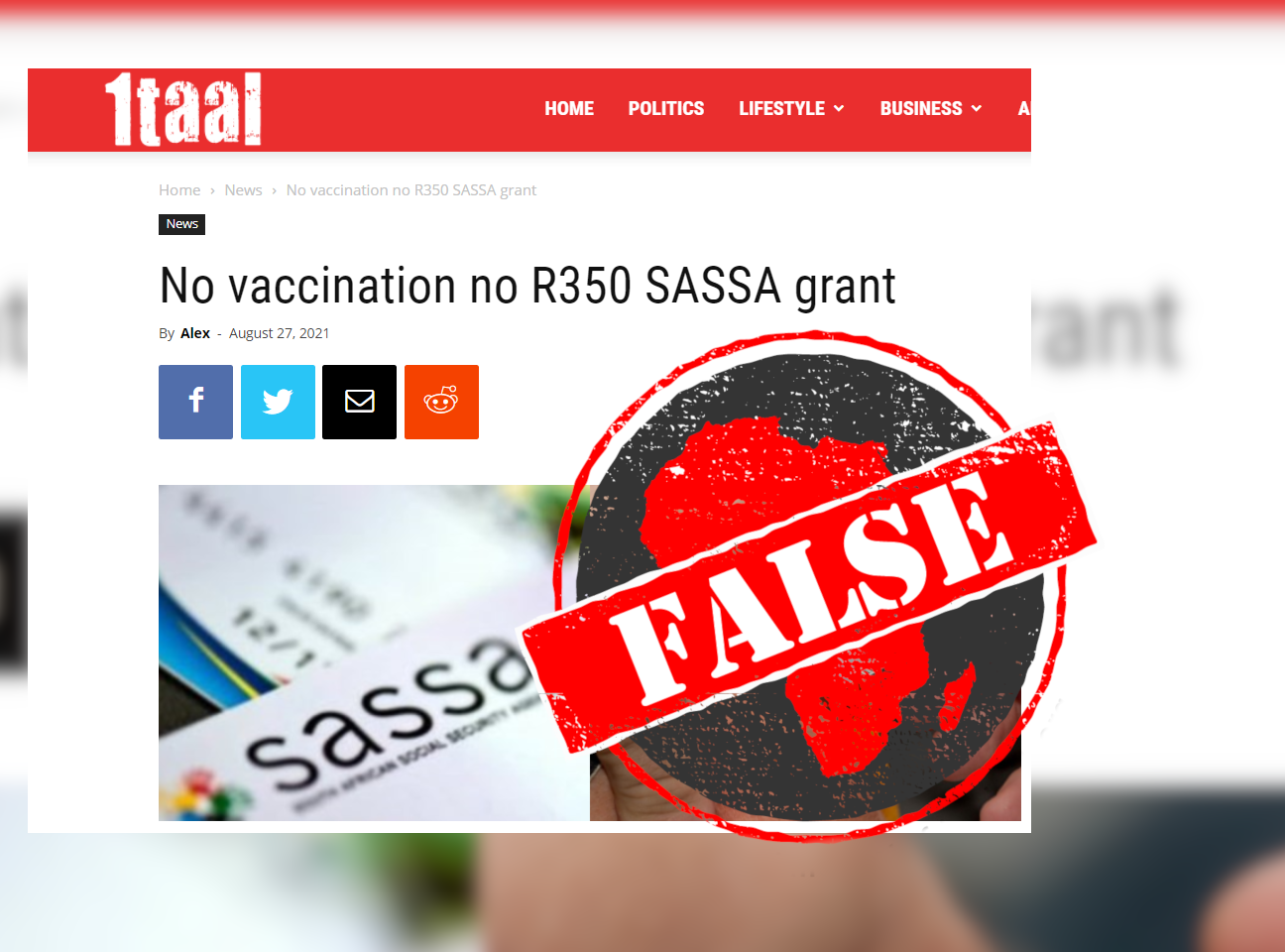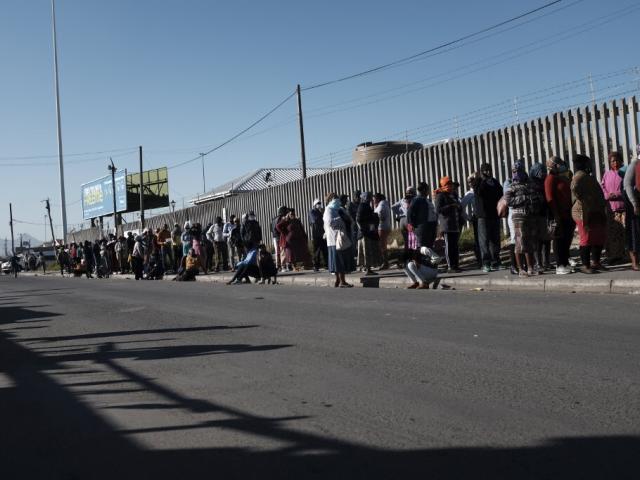“No vaccination no R350 SASSA grant,” reads the headline of an August 2021 article on 1 taal, a South African website. (“Taal” is Afrikaans for “language”.)
South Africa’s Covid-19 social relief of distress grant is intended to support unemployed citizens, particularly those who have lost jobs due to the pandemic. The R350 monthly payment is administered by the South African Social Security Agency, or Sassa.
“SASSA had been given access to data on people who have registered to vaccinate and those who had already been vaccinated,” the article claims.
“They had also been given instruction to prioritise those who had been vaccinated already when the R350 grant pay-out commence.” It says this instruction “came straight from the presidency” and is intended to “make the anti-vaccine group receive their money a bit later”.
It ends by claiming that “some” say Sassa is “just looking for a way to cut some people out” because 2021 grant applications are “way too high compared to people who applied for the grant last year”.
The article was posted on 1 taal’s Facebook page. But is payment of Sassa’s Covid grant really linked to applicants’ vaccination status?

‘Vaccination not part of Covid grant criteria’
On 30 August, Sassa took to social media to debunk 1 taal’s claims. It posted a screenshot of the article on its official Facebook and Twitter pages, stamped “FAKE”.
The below information is false and does NOT come from SASSA. COVID-19 vaccination is not part of the special COVID-19 SRD grant application criteria.#SASSACARES #Covid19SRDGrant @The_DSD @nda_rsa @PostofficeSa @GCISMedia @GovernmentZA pic.twitter.com/Q5Xk1ehSX3
— SASSA (@OfficialSASSA) August 30, 2021
“The below information is false and does NOT come from SASSA,” the agency wrote. “COVID-19 vaccination is not part of the special COVID-19 SRD grant application criteria.”
Republish our content for free
For publishers: what to do if your post is rated false
A fact-checker has rated your Facebook or Instagram post as “false”, “altered”, “partly false” or “missing context”. This could have serious consequences. What do you do?
Click on our guide for the steps you should follow.
Publishers guideAfrica Check teams up with Facebook
Africa Check is a partner in Meta's third-party fact-checking programme to help stop the spread of false information on social media.
The content we rate as “false” will be downgraded on Facebook and Instagram. This means fewer people will see it.
You can also help identify false information on Facebook. This guide explains how.




Add new comment